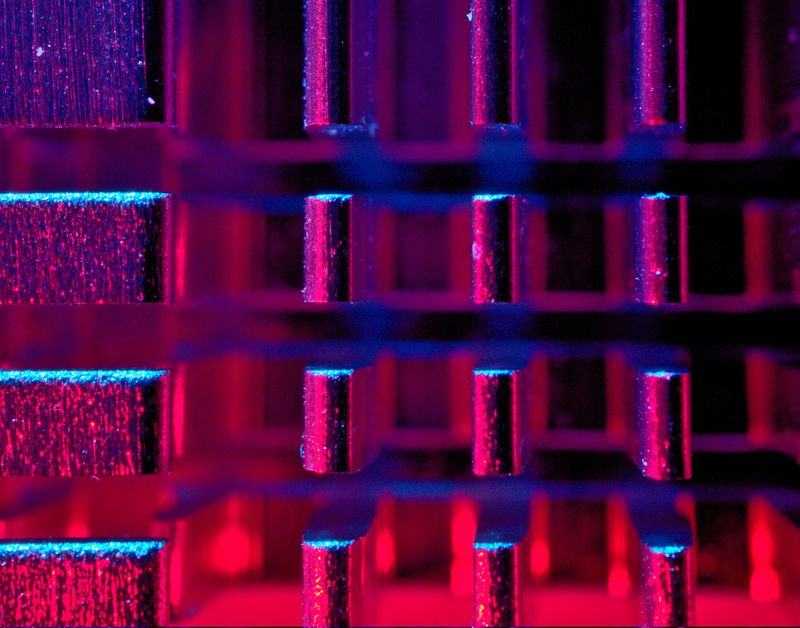Computers are getting faster, better, and smaller but there are limits. Or are there?
What is the next step in computer technology? Quantum computing can get a little confusing. If you're new to the topic, let's take a look together!
What Is A Quantum Particle?
All things (matter) are made up of smaller parts: chemical elements, molecules, atoms, and even smaller subatomic parts (particles).
We can compare the behavior of matter at different scales/sizes:
PARTICLE
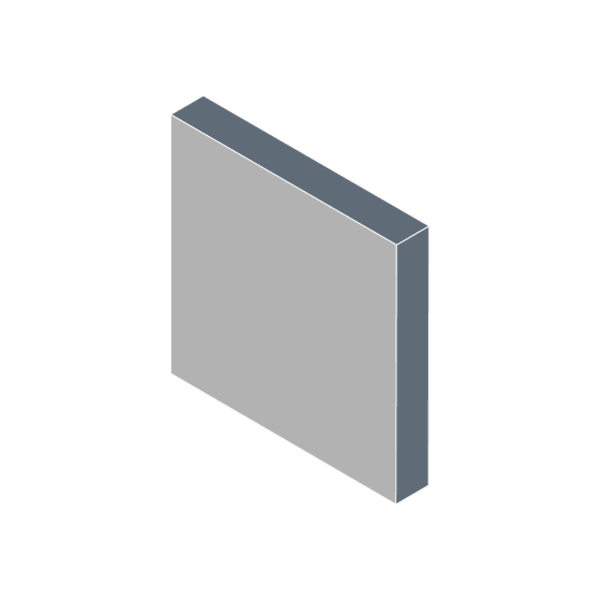 Picture a tennis ball being thrown at a wall, we know it will hit the wall and bounce consistently because of the size, materials, and forces of nature (gravity, etc) and if we did it 1000 times it would always do the same thing.
Picture a tennis ball being thrown at a wall, we know it will hit the wall and bounce consistently because of the size, materials, and forces of nature (gravity, etc) and if we did it 1000 times it would always do the same thing.
QUANTUM PARTICLE
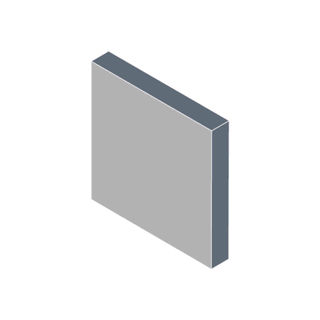 On a subatomic scale, all the rules or forces of nature stop being predictable. A quantum particle (a very tiny piece of matter), when thrown at a wall, sometimes bounces and other times it randomly goes through the wall.
On a subatomic scale, all the rules or forces of nature stop being predictable. A quantum particle (a very tiny piece of matter), when thrown at a wall, sometimes bounces and other times it randomly goes through the wall.
How Are Quantum Particles Useful?
All data on computers are made up of smaller pieces of information called bits represented by ones and zeros. For example, on this device, you see the word cat but the computer is reading 01100011 01100001 01110100 and then converts it into readable text for us. This string of ones and zeros is called Binary.
BITS
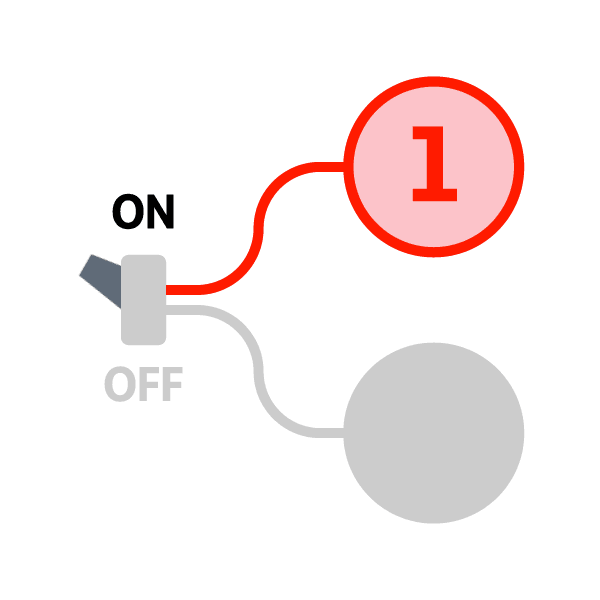 Bits of data are stored using magnets currently because they have a north and south pole. When the magnet points up, it's read as a 1, and when it points down, it's a zero. Above, you can see that bits can only have 2 options (states): "on or off", "up or down", "1 or 0".
Bits of data are stored using magnets currently because they have a north and south pole. When the magnet points up, it's read as a 1, and when it points down, it's a zero. Above, you can see that bits can only have 2 options (states): "on or off", "up or down", "1 or 0".
QUBITS
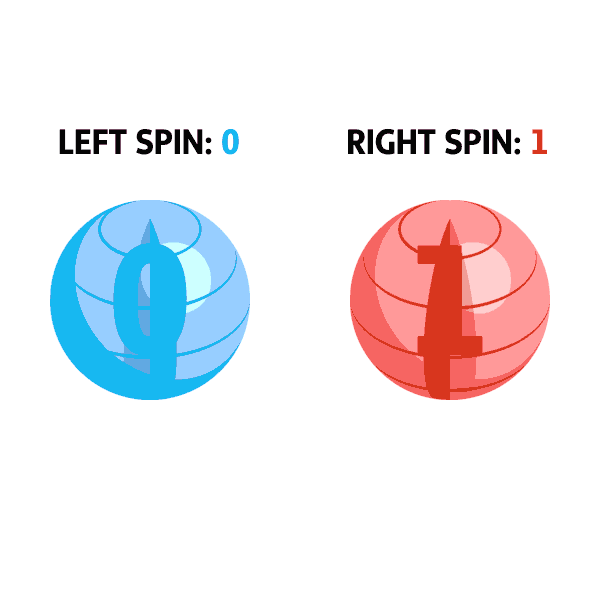 Quantum bits are similar. If a particle spins right, it's a 1. If it spins left, it's a 0. This means we can use particles to store data instead of larger magnetic materials. Unlike bits, these particles can spin in both directions simultaneously (called superposition) until measured and we can see a 1 or 0.
Quantum bits are similar. If a particle spins right, it's a 1. If it spins left, it's a 0. This means we can use particles to store data instead of larger magnetic materials. Unlike bits, these particles can spin in both directions simultaneously (called superposition) until measured and we can see a 1 or 0.
Quiz
Would you like to learn more about Binary and use a translator?
How Is A Quantum Computer Different From A Regular Computer?
Comparing traditional binary computers and qubit computers:
BINARY CALCULATION
Done in a set order
Takes more time
Cost much less and prices are decreasing
Has a limit to how small devices can be
Accessible to more people

QUBIT CALCULATION
All calculations happen at the same time
Most effective at searching large databases
Thousands of times faster than a traditional computer
Still experimental
Only accessible to large companies

Subscribe for more quick bites of learning delivered to your inbox.
Unsubscribe anytime. No spam. 🙂
Who Is Investing In Quantum Computing?
![Quantum Computing Statistics: Forecasts & Facts [2021], showing a 20 year rise of quantum computing systems development](https://research.aimultiple.com/wp-content/uploads/2020/11/quantum-computing.jpg)
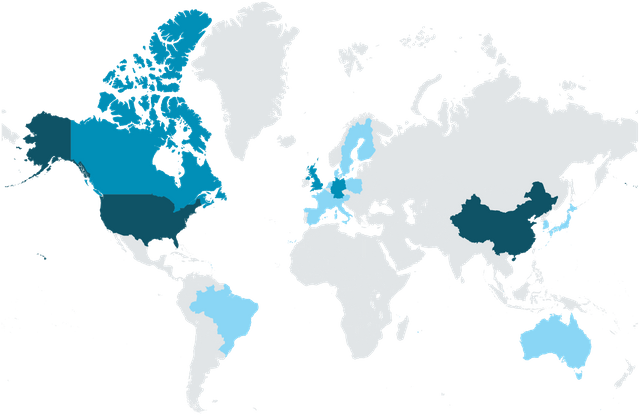 Estimated annual spending on quantum computing ($ millions)
Estimated annual spending on quantum computing ($ millions)
 WORLDWIDE QUANTUM INVESTMENTS (2016)
WORLDWIDE QUANTUM INVESTMENTS (2016)
Do You Want More Information About Quantum Computing?
This video provides an alternate description of quantum computing's impacts on business, more information about parts of computers, and future applications:
Take Action
The images in the Byte are sourced from Steemit, check out the blog content for more information.
Your feedback matters to us.
This Byte helped me better understand the topic.


